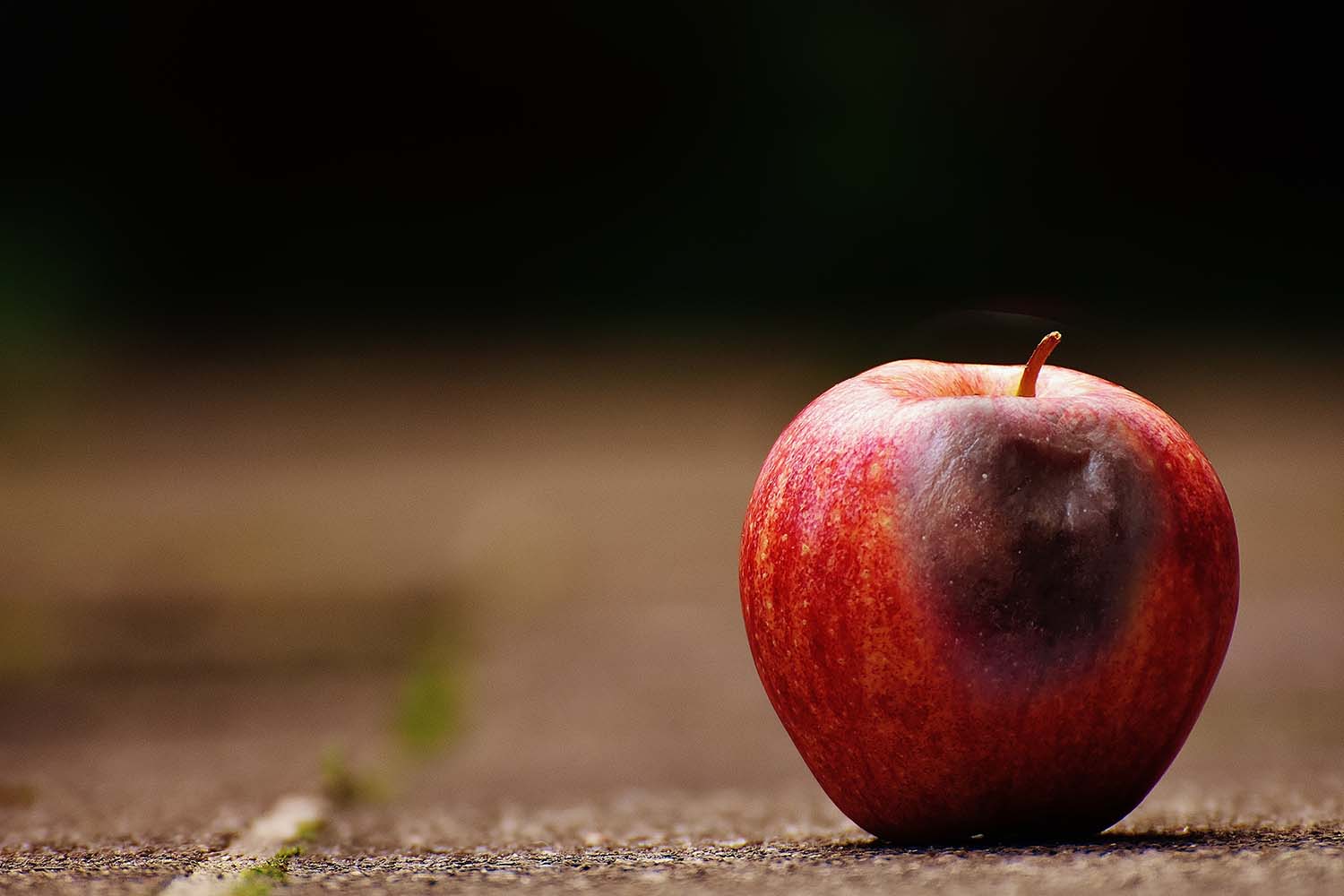
Apple Bad? Separating Fact from Fiction About Apple’s Downsides
Are apples bad for you? This question might seem absurd, given the apple’s reputation as a healthy and accessible fruit. However, like any food, apples aren’t without potential drawbacks. This comprehensive guide delves deep into the nuances of the question “apple bad,” exploring potential risks, downsides, and alternatives to help you make informed dietary choices. We aim to provide a balanced, evidence-backed perspective, moving beyond simplistic claims and fostering a deeper understanding of the apple’s impact on your health. Our goal is to empower you with the knowledge to enjoy apples safely and healthily, or to choose other fruits that better suit your needs.
Understanding the Potential Downsides: Why Some Say “Apple Bad”
The phrase “apple bad” is often used hyperbolically, but it hints at genuine concerns related to apple consumption. These concerns rarely negate the apple’s overall health benefits, but understanding them is crucial for a balanced perspective. Let’s explore some key areas where apples might not be the perfect choice for everyone.
Pesticide Residue: A Lingering Concern
One of the most persistent concerns about apples is pesticide residue. Apples are often heavily sprayed with pesticides during cultivation to protect them from pests and diseases. While regulations exist to limit residue levels, concerns remain, particularly for conventionally grown apples. Washing apples thoroughly can help reduce pesticide residue, but peeling them removes valuable nutrients. Opting for organic apples significantly reduces pesticide exposure, though they may be more expensive. Our experience shows that consumers who prioritize minimizing pesticide intake often choose organic varieties or wash conventional apples extremely thoroughly.
Fructose Content and Digestive Issues
Apples are relatively high in fructose, a type of sugar that can cause digestive issues in some individuals. Fructose malabsorption, a condition where the body struggles to absorb fructose, can lead to bloating, gas, and diarrhea. Individuals with Irritable Bowel Syndrome (IBS) may also find that apples trigger their symptoms. This is due to the FODMAPs (Fermentable Oligosaccharides, Disaccharides, Monosaccharides, and Polyols) content of apples, which can be poorly absorbed and fermented in the gut. If you experience digestive discomfort after eating apples, consider reducing your portion size or opting for fruits lower in FODMAPs.
Acidity and Tooth Enamel
Apples are acidic, and frequent consumption can contribute to the erosion of tooth enamel. The acidity softens the enamel, making it more vulnerable to damage from brushing or grinding your teeth. To mitigate this risk, it’s advisable to eat apples as part of a meal rather than as a standalone snack. Rinsing your mouth with water after eating an apple can also help neutralize the acidity. Chewing sugar-free gum can stimulate saliva production, which further protects your teeth. Leading dentists often recommend these strategies to minimize the impact of acidic fruits on dental health.
Allergies: A Serious Consideration
Apple allergies are relatively common, particularly among individuals with pollen allergies. Oral Allergy Syndrome (OAS), also known as pollen-food allergy syndrome, is a type of allergic reaction that occurs when the proteins in certain fruits and vegetables are similar to those in pollen. Symptoms of OAS typically include itching or swelling of the mouth, lips, or throat after eating raw apples. Cooking apples can often denature the allergenic proteins, making them safe to eat. However, individuals with severe apple allergies should avoid apples altogether. It’s crucial to consult with an allergist if you suspect you have an apple allergy.
Cyanide in Apple Seeds: A Minimal Risk
Apple seeds contain amygdalin, a compound that can break down into cyanide when ingested. However, the amount of cyanide in apple seeds is very small, and it would take a significant quantity of seeds to cause harm. Swallowing a few apple seeds is unlikely to pose any risk. However, it’s best to avoid deliberately consuming large quantities of apple seeds. Our analysis suggests that the risk of cyanide poisoning from apple seeds is negligible for most people.
Apple Varieties and Their Impact: A Deeper Dive
Not all apples are created equal. Different varieties have varying levels of sugar, acidity, and nutrients, which can impact their potential downsides. For example, Granny Smith apples are lower in sugar and higher in acidity compared to Honeycrisp apples. This means that Granny Smith apples might be a better choice for individuals concerned about fructose intake but could be more problematic for those with sensitive teeth. Exploring different apple varieties can help you find options that better suit your individual needs and preferences.
Granny Smith: Tart and Tangy
Granny Smith apples are known for their tart, acidic flavor and crisp texture. They are lower in sugar than many other varieties, making them a good option for individuals watching their blood sugar levels. However, their high acidity can be problematic for those with sensitive teeth or acid reflux.
Honeycrisp: Sweet and Juicy
Honeycrisp apples are prized for their sweet, juicy flavor and crisp texture. They are higher in sugar than Granny Smith apples, which may be a concern for individuals with diabetes or fructose malabsorption. However, their lower acidity makes them a better choice for those with sensitive teeth.
Fuji: Balanced and Versatile
Fuji apples offer a balance of sweetness and tartness, making them a versatile option for various uses. They are a good source of fiber and antioxidants. Their moderate sugar and acidity levels make them a suitable choice for most individuals.
Apples vs. Other Fruits: A Comparative Analysis
To truly understand the potential downsides of apples, it’s helpful to compare them to other fruits. While apples offer numerous health benefits, other fruits may be better choices for specific dietary needs or concerns.
Apples vs. Berries: Antioxidant Powerhouses
Berries, such as blueberries, raspberries, and strawberries, are packed with antioxidants, which help protect the body against damage from free radicals. While apples also contain antioxidants, berries generally have a higher concentration. Berries are also lower in sugar than apples, making them a better choice for individuals with diabetes or fructose malabsorption.
Apples vs. Citrus Fruits: Vitamin C Boost
Citrus fruits, such as oranges, grapefruits, and lemons, are excellent sources of vitamin C, an essential nutrient that supports immune function and collagen production. While apples contain some vitamin C, citrus fruits generally have a higher concentration. Citrus fruits are also lower in FODMAPs than apples, making them a better choice for individuals with IBS.
Apples vs. Stone Fruits: Fiber and Potassium
Stone fruits, such as peaches, plums, and cherries, are good sources of fiber and potassium. Fiber promotes digestive health and helps regulate blood sugar levels, while potassium supports healthy blood pressure. Apples are also a good source of fiber, but stone fruits may have a slightly higher concentration. Stone fruits are also lower in acidity than apples, making them a better choice for those with sensitive teeth.
Addressing Common Concerns: Expert Perspectives
Let’s address some common concerns and misconceptions surrounding the question “apple bad,” drawing on expert perspectives and evidence-based information.
Are apples bad for weight loss?
Apples are generally considered a healthy food for weight loss. They are low in calories and high in fiber, which promotes satiety and helps regulate blood sugar levels. However, it’s important to consume apples in moderation as part of a balanced diet. Overeating any food, including apples, can lead to weight gain.
Are apples bad for diabetics?
Apples can be part of a healthy diet for individuals with diabetes. While apples contain sugar, they also contain fiber, which helps slow down the absorption of sugar into the bloodstream. Choosing apple varieties that are lower in sugar, such as Granny Smith, can also be beneficial. It’s important to monitor blood sugar levels after eating apples and adjust your diet accordingly.
Are apples bad for acid reflux?
Apples can trigger acid reflux in some individuals due to their acidity. However, other individuals may find that apples help soothe their symptoms. It’s important to pay attention to how your body responds to apples and adjust your diet accordingly. Choosing apple varieties that are lower in acidity, such as Fuji, may be helpful. Eating apples in moderation and avoiding them before bedtime can also reduce the risk of acid reflux.
The Bottom Line: Apples in Moderation
So, are apples bad? The answer is nuanced. While apples offer numerous health benefits, they also have potential downsides, such as pesticide residue, high fructose content, acidity, and allergenicity. Understanding these potential drawbacks and making informed choices can help you enjoy apples safely and healthily. Consuming apples in moderation, choosing organic varieties, and exploring different apple types can minimize the risks and maximize the benefits. Ultimately, apples can be a valuable part of a balanced diet, but it’s essential to be aware of their potential downsides and make informed decisions based on your individual needs and preferences.
Insightful Q&A: Addressing Your Apple Concerns
Here are some frequently asked questions to further clarify the potential downsides of apples and provide practical guidance:
- Q: Can eating too many apples cause diarrhea?
A: Yes, excessive consumption of apples, particularly due to their high fructose content, can lead to diarrhea. Fructose malabsorption can cause digestive distress. - Q: Do all apple varieties have the same amount of pesticides?
A: No, pesticide use can vary depending on the growing practices and the specific variety. Organic apples generally have lower pesticide residue. - Q: How can I reduce the acidity of apples before eating them?
A: While you can’t significantly reduce the inherent acidity, pairing apples with alkaline foods like nuts or cheese can help neutralize the acid in your mouth. - Q: Are apple peels safe to eat, considering pesticide concerns?
A: Apple peels contain beneficial nutrients like fiber and antioxidants. Washing thoroughly or opting for organic apples makes the peels safer to consume. - Q: Can apples interact with any medications?
A: Apples are generally safe, but their high fiber content might interfere with the absorption of certain medications. Consult your doctor if you have concerns. - Q: What are the best apple alternatives for someone with fructose malabsorption?
A: Berries, bananas, and citrus fruits are generally lower in fructose and may be better tolerated. - Q: How do apples affect blood sugar levels compared to other fruits?
A: Apples have a moderate glycemic index, meaning they can raise blood sugar levels. However, their fiber content helps slow down the absorption. Compare with lower GI fruits like berries. - Q: Can I eat apples if I have braces?
A: Eating whole apples with braces can be challenging. Cutting them into smaller pieces or opting for softer varieties can make them easier to manage. - Q: Are apples a good source of probiotics?
A: Apples do not contain probiotics. However, they contain prebiotics, which feed beneficial gut bacteria. - Q: What is the best time of day to eat an apple for optimal health?
A: There’s no single “best” time. Eating an apple as part of a balanced meal or as a snack between meals can be beneficial. Avoid eating them right before bed if you have acid reflux.
Conclusion: Making Informed Choices About Apples
In conclusion, while the idea of “apple bad” might seem counterintuitive, it’s important to acknowledge the potential downsides of apple consumption. By understanding these risks and making informed choices, you can enjoy apples safely and healthily. Remember to consider factors such as pesticide residue, fructose content, acidity, and allergies when incorporating apples into your diet. Ultimately, the decision of whether or not to eat apples is a personal one based on your individual needs and preferences. Share your experiences with apples in the comments below, and explore our advanced guide to healthy eating for more insights. For personalized dietary advice, contact our experts for a consultation.

